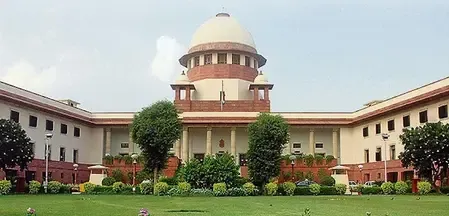Will the Supreme Court Stay the Waqf Amendment Act?

Synopsis
Key Takeaways
- The Supreme Court will announce its decision on the Waqf Amendment Act, 2025, on Monday.
- The act aims to enhance transparency in Waqf property management.
- Petitioners argue that the amendment discriminates against Muslims.
- The government defends the act as a necessary regulatory measure.
- The outcome may have significant implications for Waqf properties in India.
New Delhi, Sep 13 (NationPress) The Supreme Court is set to deliver its ruling on Monday regarding a potential stay on the Waqf (Amendment) Act, 2025 — a legislation strongly supported by the Union government as a means to prevent the misuse of Waqf properties and enhance transparency in their administration.
On May 22, a panel comprising Chief Justice of India (CJI) B.R. Gavai and Justice A.G. Masih held discussions with both the petitioners and the Centre over three sessions before deciding to reserve its order.
The controversial Act, which took effect on April 5 after receiving Presidential assent, has faced challenges from various parties, including All India Majlis-e-Ittehadul Muslimeen (AIMIM) MP Asaduddin Owaisi and Congress MP Mohammad Jawed.
The petitioners argued that the amendment discriminates against Muslims. Senior advocate Kapil Sibal, representing the petitioners, described the revised Waqf Act as unconstitutional and arbitrary, raising concerns particularly about a clause that suspends the Waqf status of a property during an investigation.
Senior advocate Rajeev Dhavan asserted that no external authority has the right to determine what is essential to a faith, stating, "Waqf is not merely a legal entity; it is a spiritual and social institution intricately linked to the lives of Muslims," referencing earlier Supreme Court rulings.
Conversely, Solicitor General Tushar Mehta, the second-highest legal officer of the Centre, contended that the Waqf concept is not inherently religious, emphasizing that Waqf boards managing these properties perform secular and administrative roles.
The new legislation modifies the Waqf Act of 1995 to better regulate Waqf properties, which are religious endowments or assets dedicated solely for religious or charitable purposes under Islamic law.
On April 17, a Bench led by former CJI Sanjiv Khanna declined to impose a stay on the Waqf (Amendment) Act, 2025, after the Centre assured the court that certain provisions would be temporarily suspended.







